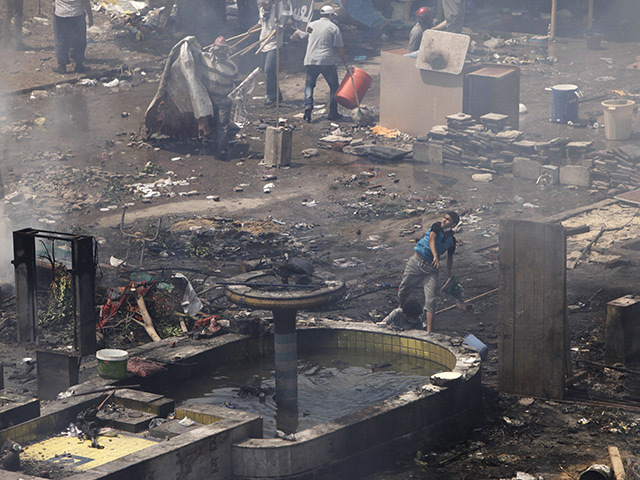
Brent crude is continuing to trade above $110 a barrel amid continuing unrest in the Middle East, and there are now fears tensions between the west and Iran could inflate it further.
Bloodshed in Egypt, closed refineries in Libya, bandits in Nigeria and continuing unrest in Iraq have created a perfect storm for supplies, pushing prices to a four-month high in recent days.
Last night, one leading Scottish analyst said he expected the troubles to underpin prices for some time to come.
Mark Flynn, director of wealth and investment management at Barclays in Scotland, told the Press and Journal supplies remained vulnerable.
He added: “Resurfacing political instability in key producing regions remains an upside risk to prices.
“In particular, developments within Iran and Libya, as well as Nigeria and Iraq, could be pivotal for the market balance.
“Iran is one of the most important geopolitical influences on oil markets in our view. In a surprise election result in June, the seemingly more-moderate President Hassan Rouhani raised the possibility of a softer stance on nuclear negotiations.
“However, it is unlikely that a sustainable resolution will be imminent. According to the International Atomic Energy Agency’s latest quarterly report, Iran has increased stockpiles of higher-grade 20%-enriched uranium and built additional high speed centrifuges (equipment used to increase the enrichment capacity) at nuclear sites.
“As Iran’s nuclear programme has continues, the US House of Representatives has passed further sanctions and similar discussions are expected in the coming months.
“Oil markets will continue to be susceptible to the state of affairs between Iran and the west, and if further sanctions are implemented, the tightness in supply could be exacerbated.”
Another significant development has been in Libya as labour strikes and protests have caused substantial disruptions at some of the major oil export terminals.
 Supplies could also be hit further by a fire at Shell’s 600,000 barrels per day Motiva refinery in Port Arthur, Texas; the biggest in America.
Supplies could also be hit further by a fire at Shell’s 600,000 barrels per day Motiva refinery in Port Arthur, Texas; the biggest in America.
Mr Flynn added: “Disruptions to oil production in Nigeria and Iraq have also weighed on global supply. Nigerian output has been curtailed by ongoing oil theft and pipeline outages and this remains a risk to long-term supply. Pipeline attacks have also weighed on Iraqi output.
“While production remains robust, the energy sector could face further security issues. In particular, there are still concerns about political tensions between Baghdad and the Kurdish regional government (KRG) over oil rights and territorial boundaries as Kurdistan’s export pipeline nears completion.
“While global spare capacity is at a more comfortable level compared to last year, the oil market balance remains vulnerable, in our view.”
North Sea Forties crude differentials weakened yesterday, coming under pressure amid narrow refining margins and as strong output at the Buzzard oil field helped offset tight supplies.
Buzzard is still pumping at its full capacity of 200,000bpd or more, although some smaller fields that feed into the Forties blend are not fully back online, say traders.
Recommended for you
